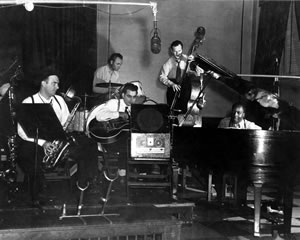Business Districts

Although a few African Americans achieved business success in Tennessee prior to the American Civil War, it was not until the post-emancipation period that African American-owned businesses began to flourish. New business districts grew up in marginal areas of towns and cities that sometimes included Jewish and other immigrant or minority populations. The tightening of Jim Crow segregation had the effect of creating spaces where general merchandise and grocery stores, banks, restaurants, saloons, billiard halls, barber and beauty shops, and funeral homes could operate freely. African American business districts formed the backbone of communities, sometimes spurring residential growth nearby. Some examples are Cedar and Jefferson Streets in Nashville, Beale Street in Memphis, East Vine Street in Knoxvillle, and 9th Street in Chattanooga.